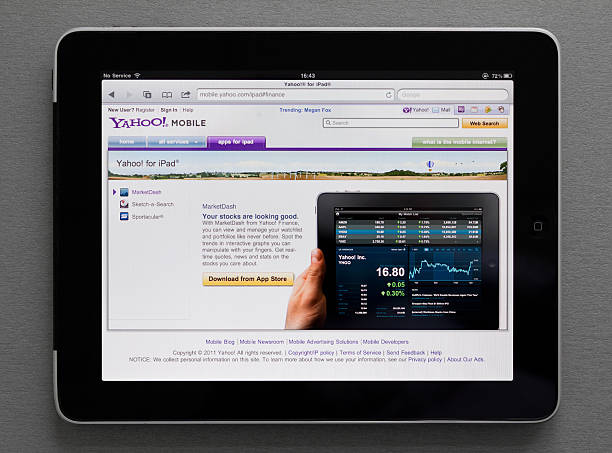Finance Yahoo
Finance Yahoo encompasses a prolific compilation of pecuniary proficients and contemplation’s. As a premier online destination for all financial matters, it adeptly amasses intricate economic indicators, shrewd stock suggestions, and sensible savings strategies under a single digital forum. Novice day traders and seasoned Wall Street veterans reap the abundant advantages of its diversified Directorate data, incisive analyst viewpoints, and comprehensive learning materials. Whether rapidly reacting to unforeseen shifts in global market undercurrents or prudently plotting a secure retirement three decades hence, users draw upon Finance Yahoo’s kaleidoscopic collection of capitalistic consciousness-raising. This piece will tour several of its preeminent departments, highlighting their distinct virtues for empowering amateur and expert investors.
Finances and planning for the future
The frantic, fast-paced realm of financial markets demands diligent tracking of fluctuating price patterns across diverse investment classes. Finance Yahoo’s Markets segment is an indispensable navigational north star for the harried multi-asset portfolio manager and the casual weekday stock dabbler. In addition to providing lithographic stock listings updated virtually in real-time, it filters significant headlines from the turbulent froth of daily monetary missives. Readers gain critical context on the creeping forces subtly shaping headline benchmarks like the Dow Jones Industrial Average. One can instantly appraise single-name shares from stalwart stalwarts or nimble upstarts across every industry in both domestic and foreign markets.
Set up automatic transfers on payday.
Supplementary to US equities, global bourses, and international currencies also receive attentive surveillance. Commentators offer lucid interpretations of macroeconomic movements and their trickle-down ramifications. An array of interactive stock-screening datasets and comparative investment graphs lubricate technical analysis. Heading 3: By constantly vigil over this dynamic financial weather, investors can stay one step ahead of shifting market currents and glean reprieve from rash decisions during madcap turmoil.
Finances and planning for the future
Proper financial management and planning are essential for long-term success and peace of mind. Whether you’re just starting your career or have been working for years, it’s necessary to understand where your money is going each month and have a plan for your earnings. The first step is creating a budget for your regular expenses like rent, utilities, groceries, credit card payments, and other obligations. With a budget, you’ll know how much you have left over each month toward savings goals.
They were left each month for savings goals.
It’s a good idea to always have an emergency fund with at least 3-6 months’ worth of living expenses in a savings account in case of unexpected costs like car repairs or medical bills. It would help to contribute to retirement accounts like a 401(k) or IRA. Even if it’s just a small amount each paycheck, starting early allows your money more time to grow through compound interest. Specific savings goals will help you stay motivated to set aside money each month. Maintaining good financial habits over the long run will ensure your future financial security.
Conclusion
Proper financial planning and management takes ongoing diligence but has significant benefits in the long run. By staying on top of your income, expenses, savings goals, and investments, you’ll gain control over your money instead of constantly chasing it or feeling insecure about your financial situation. Automating payments and contributions wherever possible, such as setting up automatic bill pay or payroll deductions for retirement accounts, makes it effortless to stay on track with your budget and savings plan. Keeping detailed records of your inflows and outflows through budgeting software or spreadsheets gives you visibility into where your money is going each month. With the proper financial habits, you’ll feel more secure taking on major life expenses like buying a home, planning for retirement, paying for your children’s education, or starting a business. A solid understanding of personal finance gives you independence and flexibility to choose how you live your best life.
FAQs
How do I create a budget?
Make a list of your regular expenses and income to determine how much you have left each month for savings goals.
How much should I save for emergencies?
Most experts recommend having 3 to 6 months’ worth of living expenses readily available in a savings account.
When should I start saving for retirement?
As early as possible, even if just a tiny amount, to allow time for compound growth of investments over decades.
What types of retirement accounts are there?
Standard options are 401(k)s through employers and individual retirement accounts like Traditional and Roth IRAs.
How can I automate my savings?
Set up automatic transfers on payday to move funds from checking to savings and retirement accounts out of sight.






